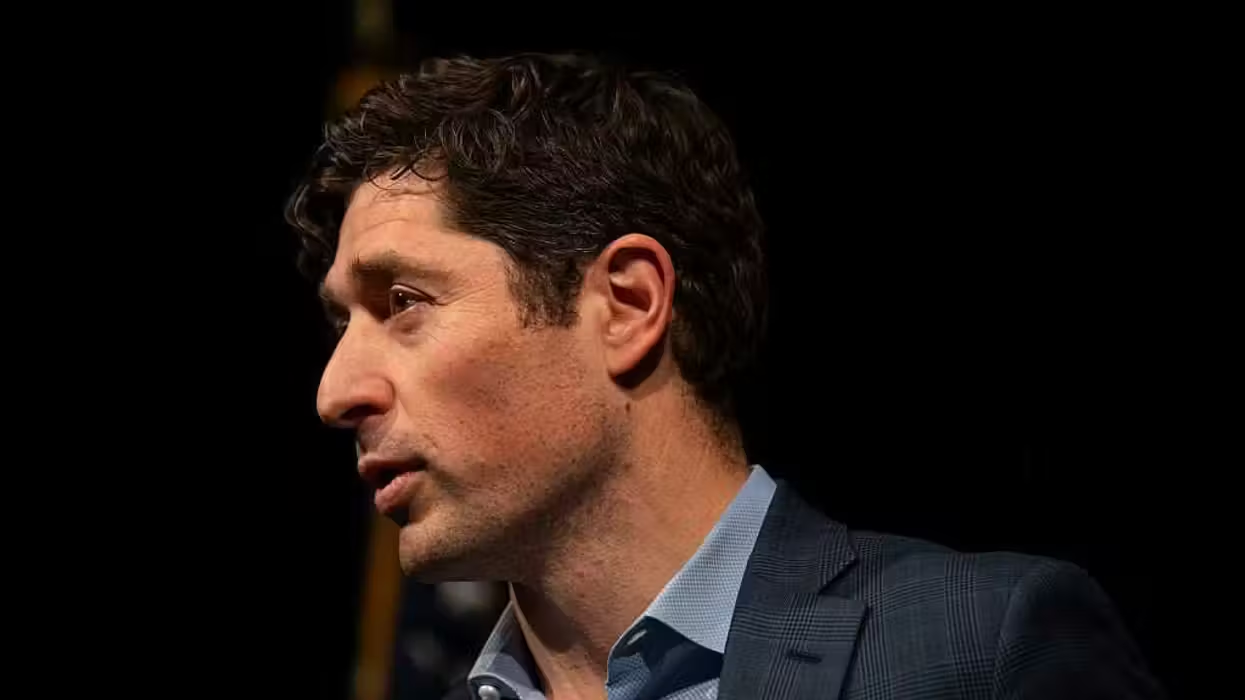
© 2026 Blaze Media LLC. All rights reserved.
Liberal Obamacare supporters must stew in their own judicial supremacy soup
July 09, 2019
Judges evidently have the power to nullify our borders, life, marriage, and election law, so do they have the power to tear up Obamacare? On Tuesday, the Fifth Circuit Court of Appeals will hear oral arguments in the Texas case, where a district judge already granted summary judgment ruling that Obamacare is unconstitutional.
So how should enemies of judicial supremacy feel, in light of the strong possibility that the appeals court will uphold the ruling declaring Obamacare, which is a fundamentally political issue, unconstitutional? That is a question many have posed to me, and I want to tackle each angle of this issue separately. There are many facets to Judge Reed O’Connor’s ruling last December, some of which I agree with, some of which I don’t, and in some, he is following existing legal practice that should be changed across the board.
In December, Judge Reed O’Connor, a Bush appointee for the Northern District of Texas, granted summary judgement in Texas v. Azar to plaintiffs suing against Obamacare. O’Connor believes that because there is no longer a penalty buttressing the individual mandate, the mandate can no longer be justified as a tax and is therefore an unconstitutional mandate under the Commerce Clause, pursuant to what the Supreme Court said in the original Obamacare case, NFIB v. Sebelius. He further stated that, as the court indicated in the original Obamacare case, because the individual mandate is inextricably tied into the mechanics of the insurance coverage regulations and the subsidy scheme of the law, once the mandate is unconstitutional, the rest of the law must be invalidated as well.
Liberals can’t have it both ways on judicial supremacism
Unlike recent liberal court rulings on fundamentally political questions of broad consequence, Judge O’Connor didn’t issue an immediate injunction, and the law has continued to function throughout the appeals process. Most people don’t even know the judgement was issued.
Obviously, conservatives would be euphoric over the policy outcome of this decision, assuming the Supreme Court agreed to uphold it (unlikely, in my view, given the politics of John Roberts). Conservatives must be prepared with a proactive approach to health care freedom. However, should we celebrate the legality of this opinion, considering that it would be settling a political difference in the courts?
This would be a good time for the Right and the Left to get together and compromise by agreeing to take “vital questions affecting the whole people,” as Abraham Lincoln suggested, out of the court system or change the legal norms of the degree of finality we accord to the judicial branch for opinions in individual cases that affect broad policies. Many of these questions should be devolved to states courts. We need judicial reform to narrow the jurisdiction of judges, scope of relief they can offer, and the rules for standing to ensure courts don’t become executive veto pens and legislatures all in one.
Absent such a compromise, however, as courts continue to nullify our sovereignty, religious liberty, marriage, abortion regulations, and election law, all I can say to my liberal friends is what’s good for the goose is good for the gander.
What distinguishes proper judicial power from judicial tyranny
I have mixed feelings about the Fifth Circuit potentially “overturning” Obamacare. In order to understand in what ways this ruling would be appropriate, we need to first go back to the fundamentals of the role of the courts and the other branches in resolving constitutional questions. (You can listen to my podcast series here, here, here, here, here, and here.)
The courts’ role of judicial review, when understood properly, is distinct from judicial supremacy. Conservatives believe in constitutional supremacy, which negates the idea of judicial supremacy. All three branches, all 50 states, and the people as a whole have a responsibility to safeguard the Constitution, and each are given specific roles and powers to do so.
There is no doubt that when a law or policy promulgated by the political branches of state or federal government directly and adversely affects a citizen while implicating an unambiguous right spelled out in the Constitution or oversteps its constitutional powers, citizens have the right to petition a court (subject to congressional regulation) for relief as one of the avenues of redressing their grievances. A court, in turn, has the power to grant that plaintiff or group of plaintiffs (with legitimate standing before the court) a judgement relieving them from the harm of that law or policy (not vetoing the law).
That is only done, according to Justice John Marshall in Marbury v. Madison, if the judge believes that the “unchangeable” Constitution demands such a result. “In some cases, then, the Constitution must be looked into by the judges” in order to resolve specific cases, wrote Marshal in the landmark judicial case.
“Some cases” was a reference to Alexander Hamilton’s explanation in Federalist #78 of judges examining the Constitution when laws governing cases were “contrary to the manifest tenor of the Constitution,” such as “bills of attainder, no ex-post-facto laws, and the like.” James Iredell, one of the fathers of Article III and an original Supreme Court justice, explained that judges will only make such pronouncements when the law is “unconstitutional beyond dispute” and only in a “clear and urgent case.” He did so in Calder v. Bull, which was about an ex post facto law.
However, the notion that a federal judge is the sole and final avenue in addressing that issue, that his opinion is self-executing on other branches of government, even when they disagree with the constitutionality of the opinion, and that the opinion is universally binding on non-plaintiffs is false and rooted in the phantom doctrine of judicial supremacy and judicial exclusivity. In other words, it’s not so much what the judges are doing (although they are pretty radical); it’s the lack of “legislative and executive review” from the other branches to check those decisions when they know they are wrong.
Judges can’t nullify, veto, or “strike down” laws the same way a president or governor has a veto power on legislation that passes a legislature. This was a different system the Founders contemplated as the “Council of Revision,” which would have been instead of, not in addition to, the independent presidential veto.
A judge, however, has the power to offer an opinion on a constitutional question when A) there is a legitimate “unchangeable” (not BS) constitutional right in play “beyond dispute”; B), the plaintiff has legitimate standing (e.g. is not a foreign national seeking entry or a third-party group that simply doesn’t like the policy); C) the plaintiff has a tangible, concrete, and individualized injury-in-fact from the law or policy that is directly redressable through the court; and D) the judge only rules for that plaintiff and for the limited, individualized relief sought, not on an abstract policy tangentially connected to but not pertaining to that plaintiff’s request or to the exact argument posited by the plaintiff. Anything else is just a judge acting like a legislature or an executive veto rather than an adjudicative body.
Finally, other branches are free to push back and, if you understand the rationale behind Marbury v. Madison, are downright obligated to push back and uphold constitutional supremacy.
Liberals created the mess that allowed Judge O’Connor to “strike down” Obamacare
Now, let’s examine Judge O’Connor’s ruling before the Fifth Circuit this week with this legal philosophy in mind.
That Obamacare is unconstitutional, as well as bad policy, is a no-brainer to any true originalist. The individual mandate is most certainly unconstitutional because it not only steps out of Congress’ enumerated powers to regulate commerce activity, but downright regulates inactivity. If coercing an individual to engage in commerce and purchase a private product is within the confines of the Constitution, then there is quite literally nothing Congress cannot do, thereby rendering the document of enumerated powers meaningless. But even the rest of the scheme is hard to justify within Congress’ powers. A state might have the ability to impose heavy-handed regulations on insurers, but there is nothing in the Constitution that allows the federal government to ban private insurance through the guaranteed issue and community rating regulations. In addition, I believe that because there is certainly a direct harm to every consumer (for example, my premiums tripled, forcing me into a sharing ministry), there is standing to sue for relief.
But the question is, what sort of relief can a judge grant in a case like this without simply nullifying or striking down a law, a power we’ve already established the courts lack, at least as a self-executing procedure? Moreover, this is not the line that Judge O’Connor took or that the plaintiffs were seeking.
If we attacked the law based on redistribution of wealth and out-of-bounds regulation of activity, then 90 percent of what the federal government does would be deemed unconstitutional. And indeed, as a conservative, I have no problem saying so. But that dog won’t hunt. That is why the plaintiffs attacked the law on the unprecedented grounds of the individual mandate.
On standing, once Congress took away the penalty, there was no tangible injury-in-fact to the plaintiffs for not purchasing insurance. In other words, the very reason why plaintiffs believe the law is unconstitutional even under John Roberts’ scheme of taxation is that the tax penalty has been zeroed out, which should remove the basis of standing to sue. Yes, it would be unconstitutional for Congress to mandate that I do 50 jumping jacks a day, but if it’s not backed by any punishment, it is not the role of the court to nullify a law in the abstract.
Moreover, rather than merely saying the insurance regulations of community rating are themselves unconstitutional, an argument plaintiffs never asserted, O’Connor took the line that once the individual mandate is unconstitutional, then the entire law is “struck down,” because it’s inextricably linked to the mandate as its funding source. But again, is it the job of a court to say the rest of the law is unworkable? That is more in line with the act of a legislature or an executive veto, a power a judge manifestly doesn’t have.
However, this is all under the conception of the judiciary that Congress should enact with judicial reform. O’Connor is working within the confines of what the legal system already does, and indeed a majority of justices already said in this very case that if the individual mandate is ruled unconstitutional, then the entire law is void because all the provisions are interdependent. Personally, I don’t agree with this long-standing practice because it violates the concept of courts serving to adjudicate specific cases rather than opining on laws in the abstract. Justice Thomas has also grown uncomfortable with this practice.
But if district judges should follow the precedents and procedures of the existing court system, supporters of Obamacare must swallow the bitter pill. The same rules that allow the ACLU to target sane policies of the government and use loose rules of standing and scattershot attacks on the law have allowed conservatives to do the same with a truly unconstitutional law. Unlike recent judicial opinions on immigration that violate both recent and long-standing Supreme Court precedent, O’Connor was merely following the lead of Roberts writing for the majority in the original case.
The same applies to rules of standing. Remember, this is a system that grants standing to random groups to sue replicas of the Ten Commandments because they merely feel “excluded” and “stigmatized.” That is the system in which Reed O’Connor is working. Thus, judicial supremacist leftists must stew in the porridge they made, which is why he granted standing to plaintiffs even though there is no fine or imprisonment backing the mandate.
Finally, it’s worth reiterating that O’Connor did not issue an injunction. Contrast that to the behavior of Judge Sabraw on catch-and-release at our border. Because of a single district judge issuing an opinion the Supreme Court is unlikely to agree with, there is irreparable harm to our nation.
If anything, based on the precedent the Left has set, they should be thankful O’Connor didn’t do to health care what their judges did to our border.
#mc_embed_signup{background:#fff; clear:left; font:14px}
/* Add your own MailChimp form style overrides in your site stylesheet or in this style block.
We recommend moving this block and the preceding CSS link to the HEAD of your HTML file. */
Want to leave a tip?
We answer to you. Help keep our content free of advertisers and big tech censorship by leaving a tip today.
Want to join the conversation?
Already a subscriber?
Blaze Podcast Host
Daniel Horowitz is the host of “Conservative Review with Daniel Horowitz” and a senior editor for Blaze News.
RMConservative
Daniel Horowitz
Blaze Podcast Host
Daniel Horowitz is the host of “Conservative Review with Daniel Horowitz” and a senior editor for Blaze News.
@RMConservative →more stories
Sign up for the Blaze newsletter
By signing up, you agree to our Privacy Policy and Terms of Use, and agree to receive content that may sometimes include advertisements. You may opt out at any time.
Related Content
© 2026 Blaze Media LLC. All rights reserved.
Get the stories that matter most delivered directly to your inbox.
By signing up, you agree to our Privacy Policy and Terms of Use, and agree to receive content that may sometimes include advertisements. You may opt out at any time.






